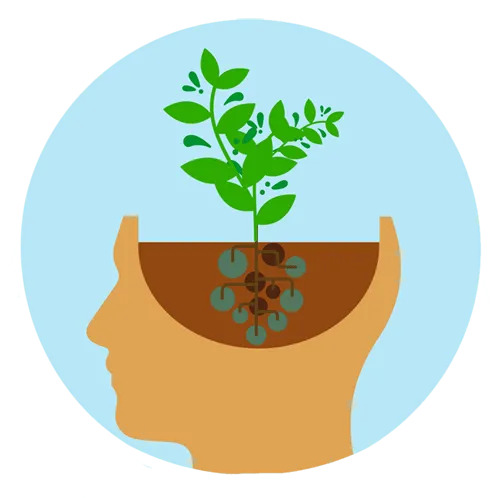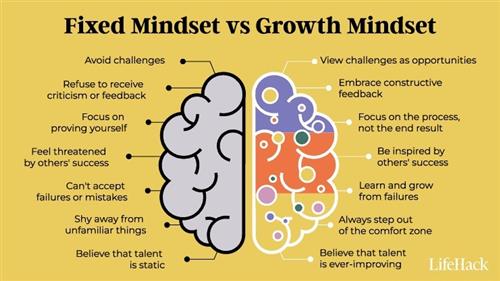- Lowell Public Schools
- Growth MindSet
Mental Health & SEL
Page Navigation
- Welcome
- Parent & Community Webinars
- Parent Education Materials
- Mental Health Support: Self-Referral Resources for Families & Students
- Community Partnerships
- Mental Health & Community Resources
- Bullying Prevention
- Vaping/Nicotine Prevention
- Social Emotional Learning (SEL)
- Staff & Teacher Wellbeing Ideas
- LPS Staff SEL Offerings/Trainings
- MTSS (Multi-Tiered Systems of Support)
- Growth MindSet
-
“A growth mindset is when students understand that their abilities can be developed,”
(Dweck, 2014).

Why Do Mindsets Matter?
A growth mindset, as conceived by Stanford psychologist Carol Dweck and colleagues, is the belief that a person's capacities and talents can be improved over time.A growth mindset in education refers to the belief that abilities and intelligence can be developed through dedication, hard work, and learning. Individuals with a growth mindset understand that their talents and skills can be cultivated over time through effort, effective strategies, and input from others. This contrasts with a fixed mindset, where abilities are seen as innate and unchangeable.
In practice, a growth mindset encourages students to embrace challenges, persist in the face of setbacks, see effort as a path to mastery, and learn from criticism. It promotes resilience, curiosity, and a willingness to learn from mistakes, fostering a positive attitude toward learning and personal development. Educators play a crucial role in cultivating a growth mindset by providing constructive feedback, teaching effective learning strategies, and creating an environment that supports effort and exploration.
People with a growth mindset are more likely to:- Embrace challenges
- Persist through setbacks
- See effort as a path to mastery
- Learn from criticism
- Find inspiration in the success of others
- Be open to improvement, even if it takes time
- Treat obstacles as opportunities to grow
- Engage in deliberate practice and continuous learning


